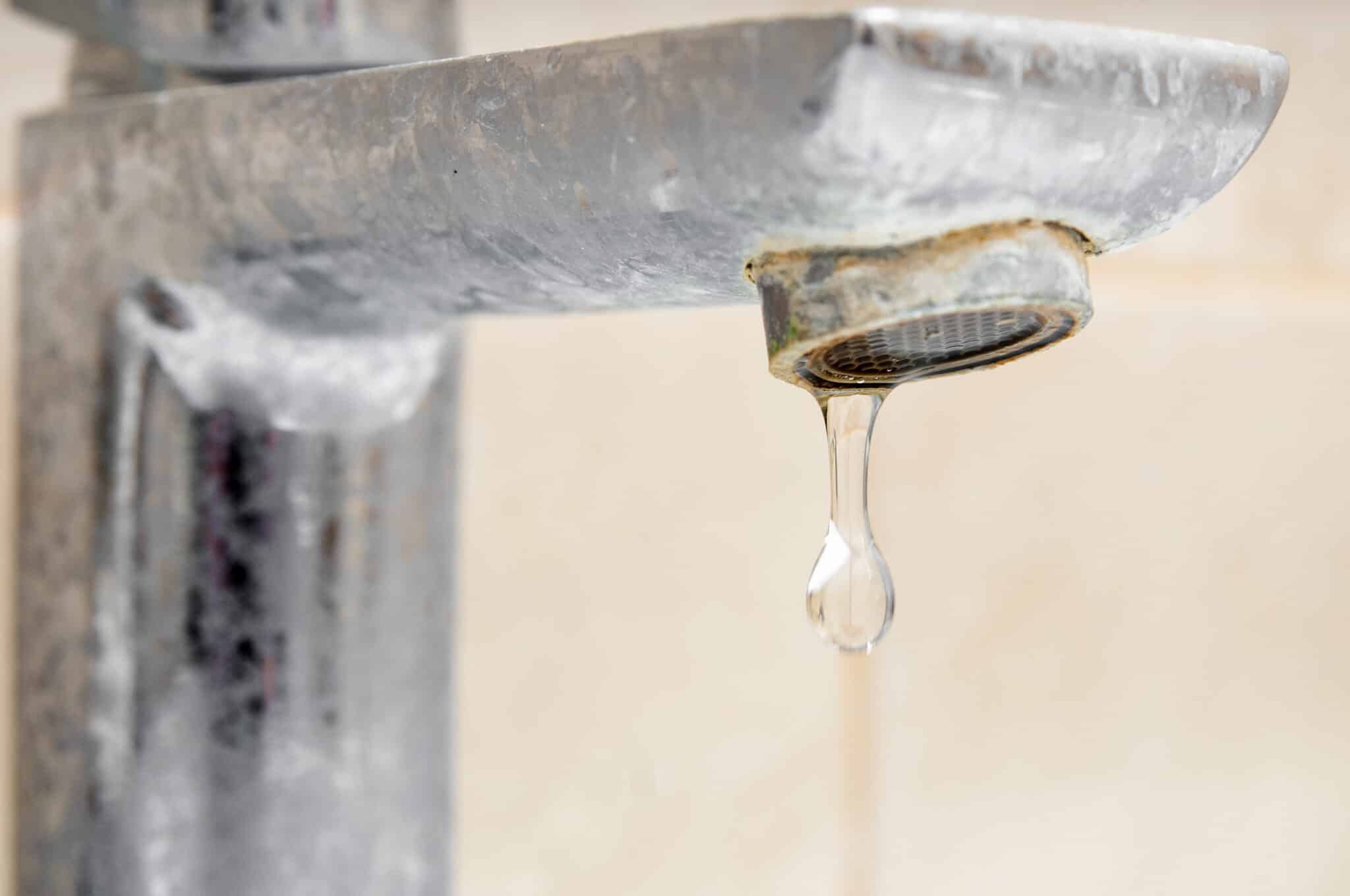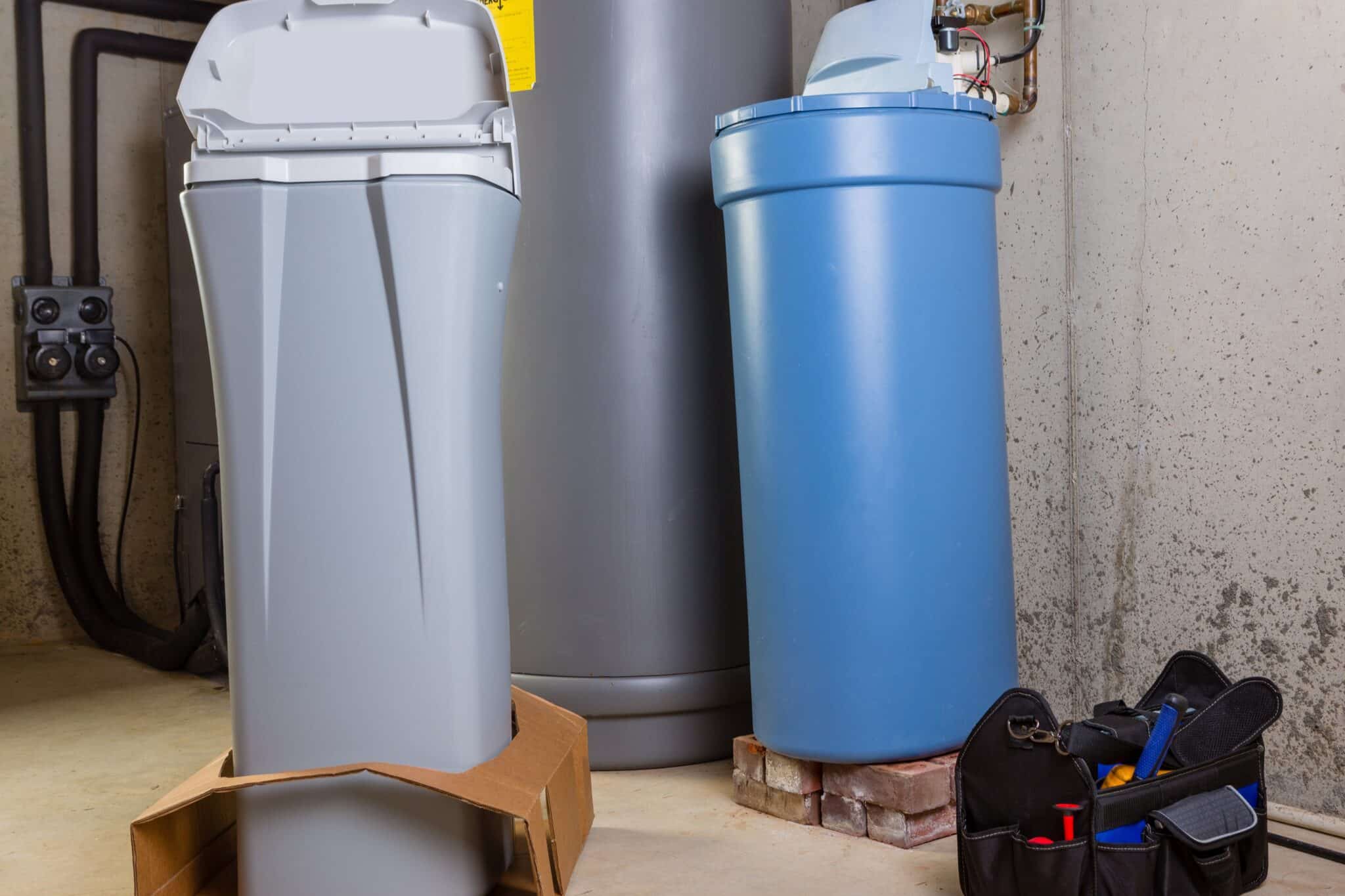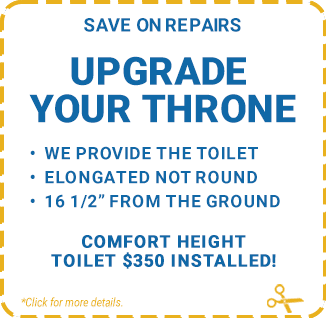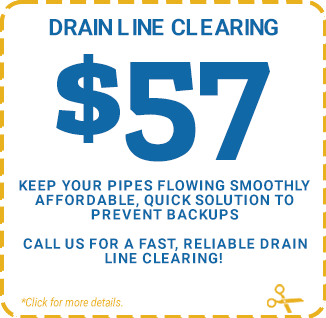5 Signs You Need a Water Softener

Hard water, common in regions like Bullhead City, AZ, occurs when groundwater accumulates excessive minerals such as calcium and magnesium. While not harmful to drink, its impact on your home can be significant. Stubborn limescale builds up on faucets, soap refuses to lather, and appliances wear out faster, costing you time and money.
For residents in Bullhead City, the mineral-rich water sources create ongoing challenges. Over time, hard water leads to clogged pipes, dull laundry, and even dry skin and hair. Recognizing these signs is crucial, as installing a water softener can transform your home’s efficiency, comfort, and water quality.
Sign 1: Persistent Soap Scum and Residue
Does it feel like your home is stuck in an endless battle with soap scum? This stubborn, chalky residue is a telltale sign of hard water, caused by high levels of calcium and magnesium. These minerals prevent soap from fully dissolving, forcing it to combine with the water’s hardness and stick to every surface it touches; showers, sinks, and even your dishes. No matter how often you clean, the residue keeps returning.
Soap scum does more than just make your home look unkempt. Over time, it builds up in your plumbing, restricting water flow and causing clogs. It dulls your glassware, damages fixtures, and increases cleaning supply costs as you use more soap and detergent to counteract its effects. For homeowners in Bullhead City, AZ, where mineral-rich water is the norm, this is an everyday struggle.
The good news? A water softener eliminates soap scum at the source. By removing the hard minerals from your water, a water softener ensures soap dissolves properly, leaving no sticky residue behind. You will enjoy sparkling clean surfaces, brighter dishes, and less time spent scrubbing. Beyond convenience, a water softener protects your home’s plumbing and fixtures, saving you money and stress in the long run.
Sign 2: Dry Skin and Brittle Hair
Have you noticed your skin feeling tight, itchy, or flaky after a shower? Or perhaps your hair feels rough, brittle, and more prone to breakage, no matter how many conditioning treatments you use. Hard water could be the underlying issue. The minerals in hard water, particularly calcium and magnesium, strip away your skin’s natural moisture barrier and rob your hair of essential oils. This leaves your skin dehydrated and irritated, while your hair becomes dull and lifeless.
But that is not all. Hard water leaves behind a stubborn residue that clings to your skin and hair. This invisible film prevents shampoos, conditioners, and soaps from rinsing clean, clogging pores, and weighing your hair down. Over time, this buildup can aggravate skin conditions like eczema and cause hair to lose its elasticity and shine, making it harder to style and maintain.
A water softener offers a lasting solution to these problems. By removing the excess minerals from your water, a water softener allows your soaps and shampoos to work as intended; rinsing away clean and leaving no residue behind. With softened water, your skin feels softer, more hydrated, and less prone to irritation, while your hair regains its natural shine and strength. Investing in a water softener does not just enhance your water quality; it revolutionizes your personal care routine, making every shower feel like a spa day.
Sign 3: Stiff, Scratchy Laundry
Do your clothes feel stiff or rough after washing, no matter how much detergent or fabric softener you use? This common issue is often a direct result of hard water. When water contains high levels of calcium and magnesium, these minerals cling to fabric fibers during the wash cycle. The result is a gritty residue that leaves clothes feeling scratchy and towels far from their intended fluffiness. Instead of soft, clean laundry, you’re left with garments that seem worn out and uncomfortable.
But the problem does not end with texture. Hard water is a silent culprit behind fading colors, graying whites, and weakened fabrics. The mineral buildup creates friction in fibers, causing them to wear out faster and making delicate fabrics more prone to tearing. This gradual damage means your favorite clothes, sheets, and towels lose their quality long before they should. Over time, you’re forced to replace items more frequently, which adds unnecessary expenses to your budget.
A water softener is the ultimate solution for preserving your wardrobe and restoring your laundry’s freshness. By removing the hard minerals from your water, a water softener allows detergents to dissolve completely and rinse away cleanly, leaving no residue behind. Clothes come out feeling softer, smelling fresher, and looking brighter. Whites stay white, colors remain vivid, and fabrics retain their durability. Towels regain their plush texture, and sheets feel luxuriously smooth. With a water softener, your laundry becomes less of a chore and more of a satisfaction, saving you time, money, and frustration.
Sign 4: Reduced Water Pressure
A noticeable decline in water pressure is often more than just a minor inconvenience; it is a warning sign of hard water wreaking havoc on your plumbing. Hard water, rich in minerals like calcium and magnesium, leaves behind a crusty residue known as limescale. Over time, this buildup narrows the diameter of your pipes, restricting the flow of water. The result is a frustratingly weak stream that makes simple tasks like showering or rinsing dishes unnecessarily time-consuming.
The impact of limescale does not stop with reduced water pressure. It puts undue stress on your entire plumbing system and appliances. Water heaters, for instance, require more energy to heat water through layers of scale, increasing your utility bills and shortening the lifespan of the unit. Dishwashers, washing machines, and even coffee makers struggle to perform efficiently as mineral deposits clog their internal components. If ignored, limescale buildup can lead to complete blockages, causing leaks, burst pipes, or expensive repairs.
Installing a water softener is the smartest way to eliminate these problems at their source. By removing calcium and magnesium from your water supply, a water softener prevents limescale from forming inside pipes and appliances. With softened water, your home maintains consistent water pressure, your plumbing stays in top condition, and your appliances operate efficiently for years to come. Beyond restoring water flow, a water softener saves you money on energy costs and costly repairs, all while improving the overall comfort and functionality of your home.

Photo from iStock – Credit: unclepodger
Sign 5: Scale Buildup on Fixtures
The unsightly white or greenish residue on your faucets, showerheads, and sinks is more than a cleaning headache; it is a glaring sign of limescale buildup caused by hard water. This stubborn mineral deposit forms when water containing calcium and magnesium evaporates, leaving behind solid particles that harden over time. The visible crust on your fixtures is only the surface-level damage. Beneath it, limescale silently impacts your plumbing and appliances, causing inefficiencies and expensive problems.
Limescale buildup does not just make your fixtures look worn out; it reduces the lifespan of your plumbing and water-using appliances. Inside pipes, limescale narrows the pathways for water to flow, leading to decreased pressure and increased strain on your plumbing system. In water heaters, it forms a thick coating on heating elements, forcing the appliance to work harder and use more energy to produce hot water. Dishwashers, washing machines, and even coffee makers suffer from reduced efficiency as jets and nozzles become clogged with scale, leading to more frequent repairs or early replacements.
A water softener is the most effective way to prevent scale buildup and its damaging effects. By removing the minerals responsible for hard water, a water softener eliminates limescale at its source. Fixtures remain bright and spotless, with no need for harsh scrubbing or repeated cleaning. Pipes stay clear, ensuring consistent water pressure and reducing the risk of costly plumbing issues. Appliances operate more efficiently, saving energy and extending their lifespans. Installing a water softener not only restores the beauty of your fixtures but also safeguards your home’s plumbing and appliances, making it a smart investment in long-term comfort and savings.
Benefits of Installing a Water Softener
Hard water can create a ripple effect of problems throughout your home, from clogged pipes to inefficient appliances. Installing a water softener is not just about improving your water it is about enhancing your entire household. Here are five compelling reasons to make the switch:
-
Lower Maintenance Costs
Hard water leaves mineral deposits, known as limescale, in your pipes, appliances, and fixtures. This buildup leads to clogs, reduced efficiency, and frequent repairs. A water softener eliminates limescale, reducing wear and tear and minimizing the need for costly maintenance or replacements.
-
Boosted Appliance Efficiency
Appliances like water heaters, washing machines, and dishwashers perform better with softened water. Without hard water minerals clogging their components, these appliances work faster, use less energy, and clean more effectively. Over time, you’ll notice lower energy bills and longer-lasting appliances.
-
Enhanced Water Flow
Hard water deposits can narrow pipes, decreasing water pressure and straining your plumbing system. By removing the minerals that cause these blockages, a water softener keeps pipes clear, ensuring consistent and reliable water flow throughout your home.
-
Healthier Skin and Hair
Hard water strips your skin and hair of natural oils, leaving them dry, dull, and irritated. Softened water restores balance, providing a gentler, cleaner rinse that leaves your skin hydrated and your hair softer, shinier, and more manageable.
-
Long-Term Savings
While the initial cost of a water softener may seem like a significant investment, the long-term savings are undeniable. From lower energy costs to fewer appliance replacements and less frequent plumbing repairs, a water softener pays for itself over time.
By addressing hard water issues at their source, a water softener transforms your home’s plumbing and appliances, reduces costs, and enhances everyday comfort. It is an upgrade that improves your quality of life while protecting your investment.

Photo from iStock – Credit: ozgurcoskun
How a Water Softener Works
A water softener is a device designed to remove the minerals in hard water, specifically calcium and magnesium, that cause limescale buildup and other issues. It operates using a simple yet effective process called ion exchange, which replaces these hard minerals with sodium or potassium ions, making the water “soft.”
Here is how it works step-by-step:
-
Hard Water Enters the System
Water from your home’s main supply line flows into the water softener tank. This water contains high levels of calcium and magnesium, which cause the issues associated with hard water.
-
Ion Exchange Process
Inside the tank, the water passes through a bed of resin beads. These beads are coated with sodium or potassium ions. As the hard water flows over them, the calcium and magnesium ions attach to the beads, displacing the sodium or potassium ions into the water. This exchange removes the hardness minerals from the water.
-
Soft Water Exits
The treated water, now free of calcium and magnesium, flows out of the tank and into your home’s plumbing system. This softened water is gentler on pipes, appliances, and even your skin and hair.
-
Regeneration Cycle
Over time, the resin beads become saturated with calcium and magnesium ions and need to be recharged. During the regeneration cycle, a concentrated brine solution flushes the beads, washing away the trapped minerals and replenishing the beads with fresh sodium or potassium ions. The system then resumes its softening process.
By removing hard minerals at the source, a water softener ensures that the water flowing through your home is soft, preventing scale buildup, reducing maintenance costs, and improving the efficiency of appliances. It is a straightforward system that delivers long-lasting benefits for your home and family.
Why Choose Benjamin Franklin Plumbing of Mohave County
When it comes to plumbing services, reliability and expertise are non-negotiable. That is why homeowners in Bullhead City and the surrounding areas turn to Benjamin Franklin Plumbing of Mohave County. With a legacy of delivering exceptional results and a commitment to customer satisfaction, they have become the go-to choice for plumbing solutions that work.
Top-Tier Expertise
At Benjamin Franklin Plumbing, every technician is licensed, highly trained, and equipped to handle a wide range of plumbing challenges. Whether you need a water softener installed to combat hard water issues, repairs for leaky pipes, or maintenance for your water heater, their team ensures that the job is done right the first time. With their extensive experience, they can solve even the most complex plumbing problems with precision and efficiency.
Comprehensive Plumbing Solutions
Benjamin Franklin Plumbing offers a complete suite of services tailored to meet the needs of local homeowners. From professional water softener installations to drain cleaning and system inspections, they focus on solutions that not only address current issues but also prevent future ones. Their expertise with hard water mitigation helps protect your home from limescale buildup, extending the lifespan of your plumbing and appliances.
Customer-First Approach
What truly sets Benjamin Franklin Plumbing apart is their dedication to your satisfaction. They pride themselves on punctuality, professionalism, and clear communication. Their “On Time Guarantee” ensures they respect your schedule, while their 100% satisfaction policy demonstrates their commitment to delivering results that exceed expectations. Their transparent approach builds trust and leaves homeowners feeling confident in their services.
Local Knowledge, Personalized Service
As a locally operated business, Benjamin Franklin Plumbing understands the specific challenges faced by homeowners in Mohave County. Their familiarity with the region’s water quality and plumbing infrastructure allows them to provide targeted solutions, from addressing hard water problems with a water softener to maintaining efficient plumbing systems tailored to the local environment.
When you choose Benjamin Franklin Plumbing of Mohave County, you’re choosing a partner who values quality, reliability, and customer care. With their unmatched expertise, comprehensive services, and commitment to satisfaction, they are the trusted choice for keeping your home running smoothly.
FAQ
-
What is a water softener?
A water softener is a system that removes hard minerals like calcium and magnesium from your water supply. These minerals cause limescale buildup, soap scum, and other issues in your plumbing and appliances. By using a process called ion exchange, the water softener replaces hard minerals with sodium or potassium ions, providing softened water that is gentler on your home and your body.
-
How can I tell if I have hard water?
Common signs of hard water include white, crusty deposits on faucets and fixtures, soap that does not lather well, and spots on dishes after washing. You might also notice stiff laundry, dry skin, or brittle hair. For confirmation, you can use a hard water test kit or consult a professional service to measure your water’s hardness level.
-
Are water softeners expensive to maintain?
Maintaining a water softener is both easy and affordable. The primary cost involves periodically refilling the softener with salt or potassium pellets, which are reasonably priced. Additionally, routine inspections ensure the system runs efficiently and prolongs its lifespan, making it a cost-effective solution for long-term water quality improvement.
-
Can a water softener improve my water pressure?
Yes, a water softener can help restore water pressure. Hard water minerals create limescale buildup inside pipes, reducing their diameter and restricting water flow. A water softener prevents this buildup, keeping your pipes clear and maintaining consistent, strong water pressure throughout your home.
-
How do I choose the right water softener for my home?
The right water softener depends on your household’s size, water usage, and the hardness of your water. Professional guidance from experts, like those at Benjamin Franklin Plumbing of Mohave County, ensures you select a system tailored to your home’s specific needs, providing optimal performance and value.


















